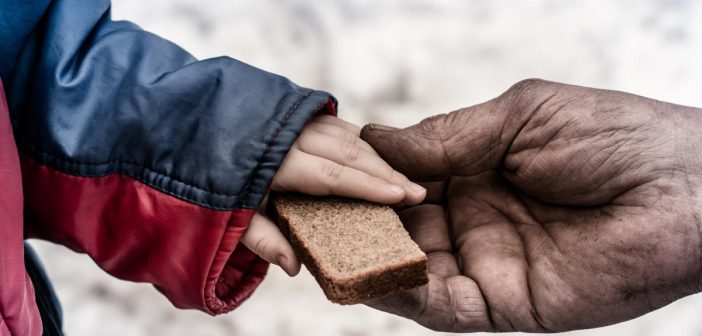Globally our children are exposed to rampantly changing environments that promote activities in isolation and be totally self-reliant. It’s good to be independent but not self-consumed. It’s a rather difficult task for parents to draw the right balance between evolution and values. There are, however, ways to keep children grounded, and sensitized to the needs of others, helping them build a foundation that makes them responsible community citizens.
Our children sometimes tend to believe the only way to existence is their environment, which can push them to react selfishly or aggressively towards the underprivileged or the needy. The idea is to drive “willingness” in our children to desire to help others.
Even for me, this was a journey that began two years ago. I found a fantastic route right in my little community, our church started a feeding initiative for the underprivileged about that time. Soon I found myself heading The Project and that’s how my Lessons in Community Services began. I could’ve never imagined with two boys, a job, and a full house with a pet I would even have the time, inclination, and energy to build this ministry and reach out to the homeless relentlessly every Sunday. The best part was, that both my boys helped Serve and interacted with these kids and adults, this has over the years made them more thankful, grateful, kind, and compassionate towards others.
I truly believe they’ve benefited from this learning and so can yours.
Listed below are a few ways families can help their kids develop an attitude of gratitude and sharing:
 Teach them kindness & sensitivity towards animals – as parents you don’t need to adopt/buy a pet necessarily, however, it’s a good idea to let your kids understand the need for compassion towards all kinds of animals. Gently restrict your child from being unkind/irritating to any animal on the street or at home. Help them reflect on these actions themselves and realize how simple emotions can be felt by animals too e.g. pain, fear, fright, and happiness.
Teach them kindness & sensitivity towards animals – as parents you don’t need to adopt/buy a pet necessarily, however, it’s a good idea to let your kids understand the need for compassion towards all kinds of animals. Gently restrict your child from being unkind/irritating to any animal on the street or at home. Help them reflect on these actions themselves and realize how simple emotions can be felt by animals too e.g. pain, fear, fright, and happiness.- Encourage them to spend time with Grandparents/older people – we at times ignore the “walking talking” encyclopedias we’ve all been blessed with – our Parents. The enriching experience our Parents can provide and the effect their presence has on grandchildren should not be taken for granted. Encourage your children to learn from them actively on a day-to-day basis, this bond will help them respect and value age & it’s needs.
- Let them share with house helps – it is critical children understand the dignity of labor and respect for everyone. Teach them to share gifts and meals with the house-help. Invite their family over for playtime or quick snacks. Encourage a gentle loving tone while speaking with the house-help and others who may be employed by you.
- Have them carry eatables in the car – a very simple way of charity is to have your children give away small snacks and cookies to the homeless on the streets. This would also be a good time to explain why we don’t encourage begging by giving money, however, we can all spare food and clothes that may be given away to these people.
 Find a reliable local charity organization – children learn faster when they’re given opportunities that allow them experiential learning. Have your child visit a local charity home and let him/her observe over a period of time. You will be amazed how they connect with their emotional & sensitive self, make friends and become more giving.
Find a reliable local charity organization – children learn faster when they’re given opportunities that allow them experiential learning. Have your child visit a local charity home and let him/her observe over a period of time. You will be amazed how they connect with their emotional & sensitive self, make friends and become more giving.
It’s good to raise healthy kids who’re not self-obsessed and enjoy giving. These experiences will help them contribute to their family, community, and nation. Tiny steps in life can help our children transition into positive & compassionate human beings, start small but start today.








1 Comment
Pingback: 10 ways to teach your child the value of money - Nurturey Blog